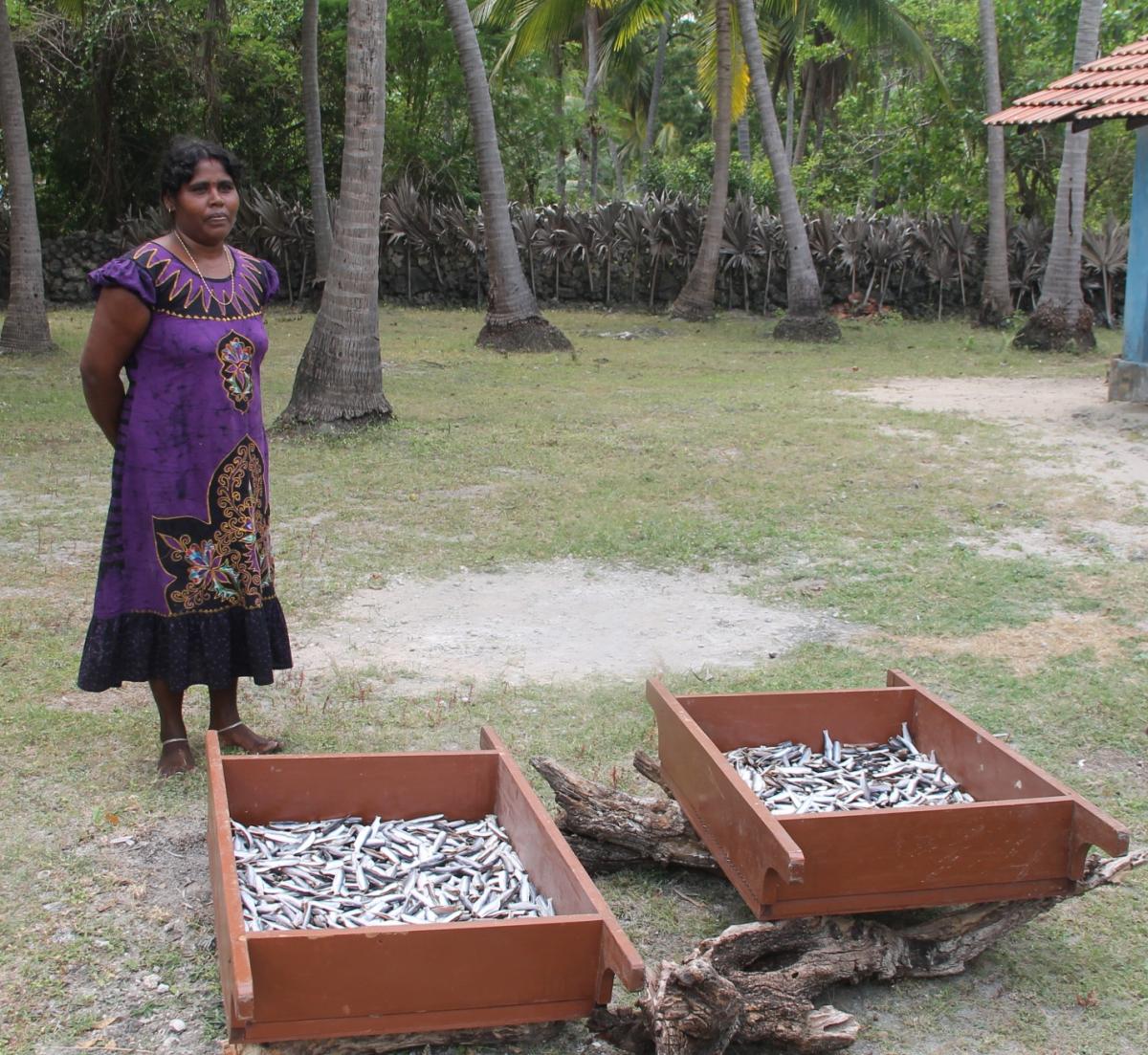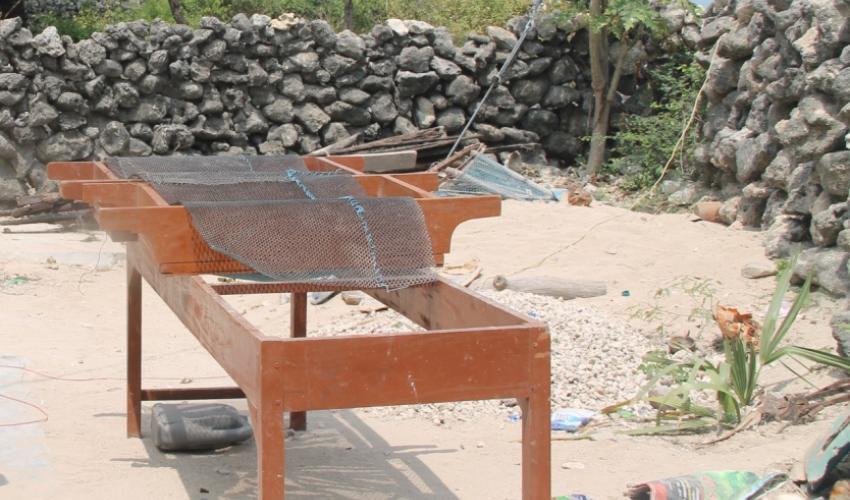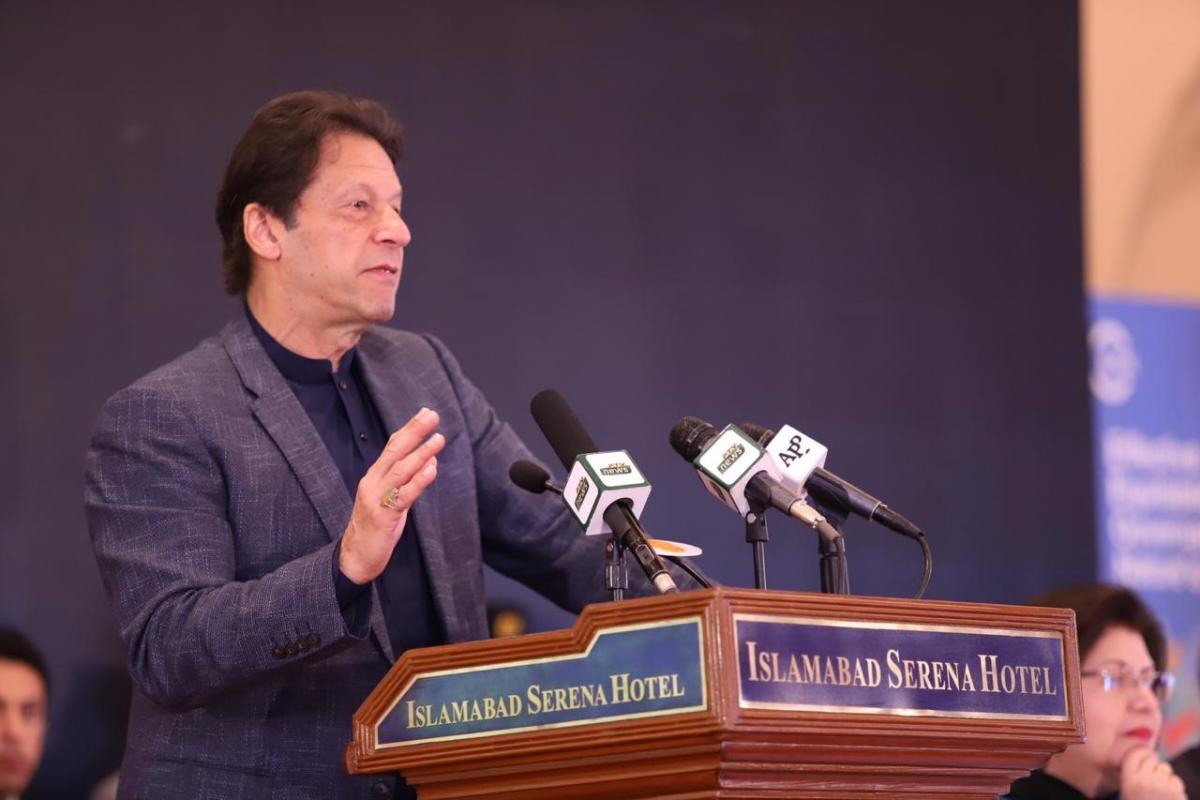Health N’ Delft: Low-salt dried fish for the health conscious
On Delft, an island in the Palk Strait north of Sri Lanka, approximately 1,200 out of a population of 4,502 rely on fisheries for their livelihoods. As freezer facilities to store fish are not available in the island, fishermen are forced to sell their daily catch to buyers from the mainland, most of the time on the buyer’s terms. Sometimes, fishermen cannot find buyers for their catch.

Photo: © Sevalanka Foundation
“Though we were getting huge fish catches, we were not able to sell it all at a fair price. This forced us to dry the excess fish and sell it to local retailers,” said Annet Pathmavathy, a native of the island. Annet had been displaced to India in 1990 during the civil unrest and returned to Delft 11 years later with her family of seven to start life afresh.
Drying unsold fish is a way out of the unfortunate situation. Many fisher families dry their fish using traditional methods such as spreading the fish out on a plastic sheet on the ground. Unfortunately, because the fish has a high salt content, the final product is saturated with salt. It is also often contaminated with dirt, grit and pathogens, as it has been exposed to the ground.
In June 2014, with the support of Mangroves for the Future (MFF) and the assistance of the Delft Fisheries Federation and the 'Grama Niladaries' (Village Heads), a local NGO called the Sevalanka Foundation introduced a new dried fish processing method to 40 women on the island. The pilot initiative taught women how to dry fish hygienically – by soaking them in a 20% salt solution for one hour before drying them on a specially-designed stand for about three days. The initiative also provided them with the necessary tools to carry out the activities.
 Photo: © Sevalanka Foundation
Photo: © Sevalanka Foundation
“The salt content of the fish processed through this method is about 50% lower than that produced using the traditional method,” says Ketheeswaran Sugesan, former Project Manager of MFF’s small grant facility in Sri Lanka.
Annet was one of the project's beneficiaries. “I initially found the new method – which had certain steps to follow and required making a salt solution of particular concentration – cumbersome,” she said, "but I soon got used to it.” She sells most of her dried fish products to tourists who visit Delft and promotes her products through mini-truck drivers who also double as tour guides. Thanks to this setup, Annet receives orders from many buyers outside of Delft.
“Thanks to the project, I now earn LKR 13,000 (US $85) per month and my monthly family income has increased by 30%,” she explained, showing the MFF team a handful of dried sardines. “I can buy more things for my family, like basic electrical kitchen items, and I have also started saving for rainy days. I am now seeking financial support to purchase a vacuum-packing machine, as I am planning to set up a stall near the Delft Jetty.”
The low-salt dried fish is becoming increasingly popular among visitors to the island, especially health-conscious Sri Lankan expatriates concerned about their salt intake.
This story was contributed by Kumudini Ekaratne, Communications focal point for IUCN Sri Lanka. Kumudini drafted the piece following the IUCN Asia Strategic Communications for Conservation Workshop in Bangkok, Thailand, which took place in July.
Mangroves for the Future (MFF) is a partnership-based regional initiative which promotes investment in coastal ecosystem conservation for sustainable development. MFF focuses on the role that healthy, well-managed coastal ecosystems play in building the resilience of ecosystem-dependent coastal communities in Bangladesh, Cambodia, India, Indonesia, Maldives, Myanmar, Pakistan, Seychelles, Sri Lanka, Thailand and Viet Nam. The initiative uses mangroves as a flagship ecosystem, but MFF is inclusive of all types of coastal ecosystem, such as coral reefs, estuaries, lagoons, sandy beaches, sea grasses and wetlands. MFF is co-chaired by IUCN and UNDP, and is funded by Danida, Norad, and Sida and the Royal Norwegian Embassy in Thailand.

